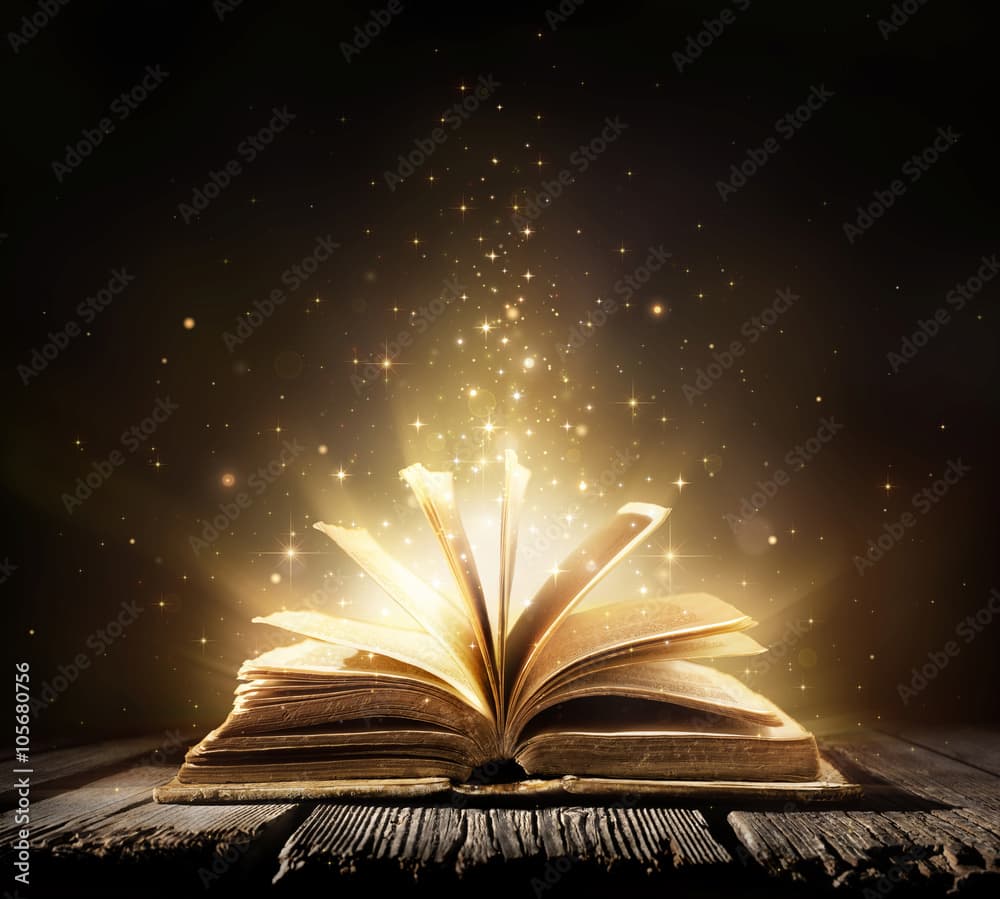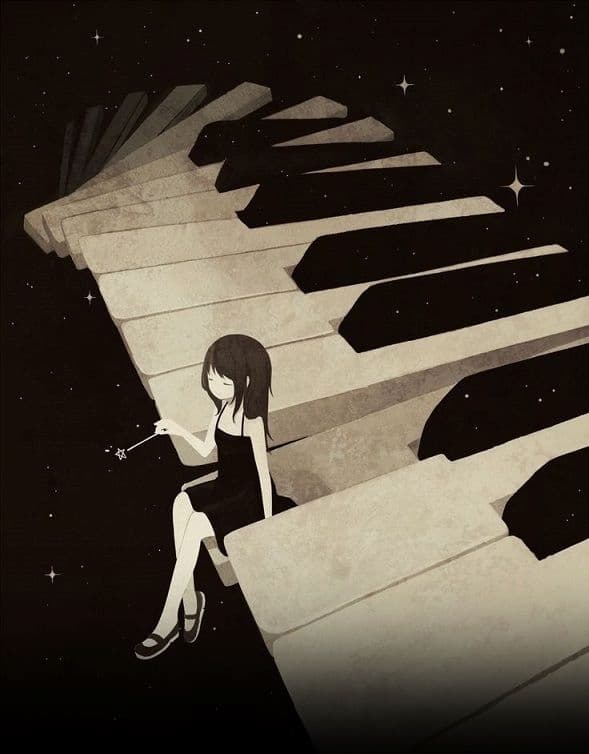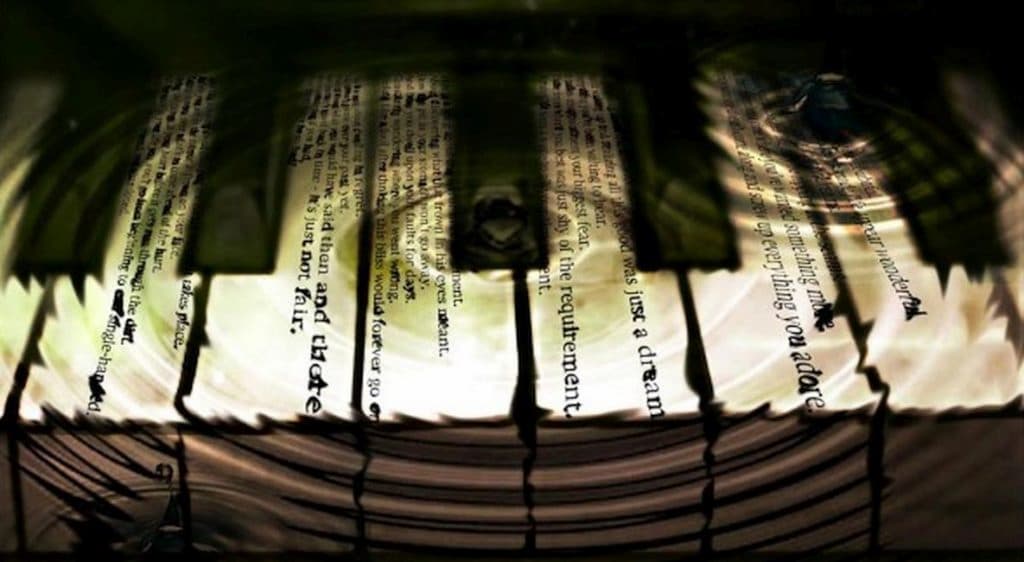When we say ‘Magic’ in reference to music, we think of Mozart’s The Magic Flute, or perhaps Dukas’ The Sorcerer’s Apprentice. There are other magics out in the world of music, all of which take us to a different place than our current reality. Follow us on a tour through many different magics and magic places.

Opening a book to the magic within
Isaac Albéniz’s opera The Magic Opal of 1893 was his first trial of writing opera. In London, the manager of the Lyric Opera, Henry Lowenfeld, commissioned Albéniz for an opera based on a libretto by Arthur Law. Although set in 19th-century Greece, much of Albéniz’s Spanish style creeps through. As everyone tries to get the Magic Opal that causes any member of the opposite sex to fall in love with its wearer, the comic effects multiply. The work was revised later as The Magic Ring and presented later in 1893 at the Prince of Wales Theatre.
Isaac Albéniz: The Magic Opal – Overture (BBC Philharmonic Orchestra; Juanjo Mena, cond.)
In literature, the Magic Island is, of course, Prospero’s Island from Shakespeare’s The Tempest. In the hands of composer William Alwyn, The Magic Island is an island of mystery, of danger, of incredible atmosphere. The work was completed in March 1952, having been commissioned by conductor Sir John Barbirolli. There’s much of Alwyn’s background in film music in creating the island, that is, as Caliban says, ‘‘full of noises, sounds and sweet airs, that give delight and hurt not’.
William Alwyn: The Magic Island (London Symphony Orchestra; Richard Hickox, cond.)
Romanian composer Radu Paladi wrote music for an animated cartoon in his early years as a composer and later arranged it in 1954 as a symphonic Suite. The Little Magic Flute comes from a Romanian folk tale where a shepherd boy and his magic flute drive out the evil of the world.

Magic in Music (Image by Spencer Imbrock)
Radu Paladi: Symphonic Suite, “Fluieraşul fermecat” (The Little Magic Flute) – Allegretto (Württembergische Philharmonie Reutlingen; Eugene Tzigane, cond.)
Francesco Hoch’s opera The Magic Ring, written between 1995 and 2000, was written for 3 women’s voices, 3 men’s voices, 3 electric guitars, 3 percussionists, and an 8-channel electronic tape. The work is less an opera than a ‘complex multimedia event’ and has only received one performance (2002 in Milan). The Magic Ring of the title is the stock exchange and how this has become the pulse of the world, where ‘far-reaching, interweaving actions decide the future…’. At the end of the opera, all powers are released and spread through time and space, musical genres, works, and rhythms mix to form a ‘grotesque march’.

Magic Music
Francesco Hoch: The Magic Ring: Epilogue – Trionfo e totalità del nuovo Ring (Stéphanie Burkhard, Magali Schwartz, Susanne Otto, women singers; Leopold Kern, Hubert Mayer, Matthias Schadock, men singers; Gitarrentrio Basel; Basler Schlagzeugtrio; Zsolt Nagy, cond.)
In Olga Neuwirth’s Magic flu-idity she mixes two usually very separate instruments: a flute and an office machine for a duet between flute and Olivetti typewriter.
Olga Neuwirth: Magic flu-idity (Vera Fischer, flute; Anonymous, typewriter)
Kenneth Hesketh’s Through Magic Casements takes its title from John Keats’ Oder to a Nightingale.
The same that oft-times hath
Charm’d magic casements, opening on the foam
Of perilous seas, in faery lands forlorn.
In the poem, the poet sits, stunned, his sense dulled, until he hears a nightingale and is recalled to his senses, closing with the thought, ‘Fled is that music:—Do I wake or sleep?’. And so Hesketh leaves us, evaporated into a dream world.

Magic Keys
Kenneth Hesketh: Through Magic Casements (Clare Hammond, piano)
French composer Thierry Escaich takes us to a Magic Circus replete with tightrope walkers, clowns, and brass bands…but in this work for wind octet, this isn’t Ringling Brothers, full of cheer and surprises, but more like a Fellini-esque circus where drama underlies the vulgarity and energy can descend into enigma. The sad-faced clowns tumble around and run into each other while the audience swelters in the heat and lights.
Thierry Escaich: Magic Circus (Ensemble Initium)
Magic can have many meanings and sometimes isn’t even magic at all, but a sad irony of a hidden life. Find your own magic!
For more of the best in classical music, sign up for our E-Newsletter

